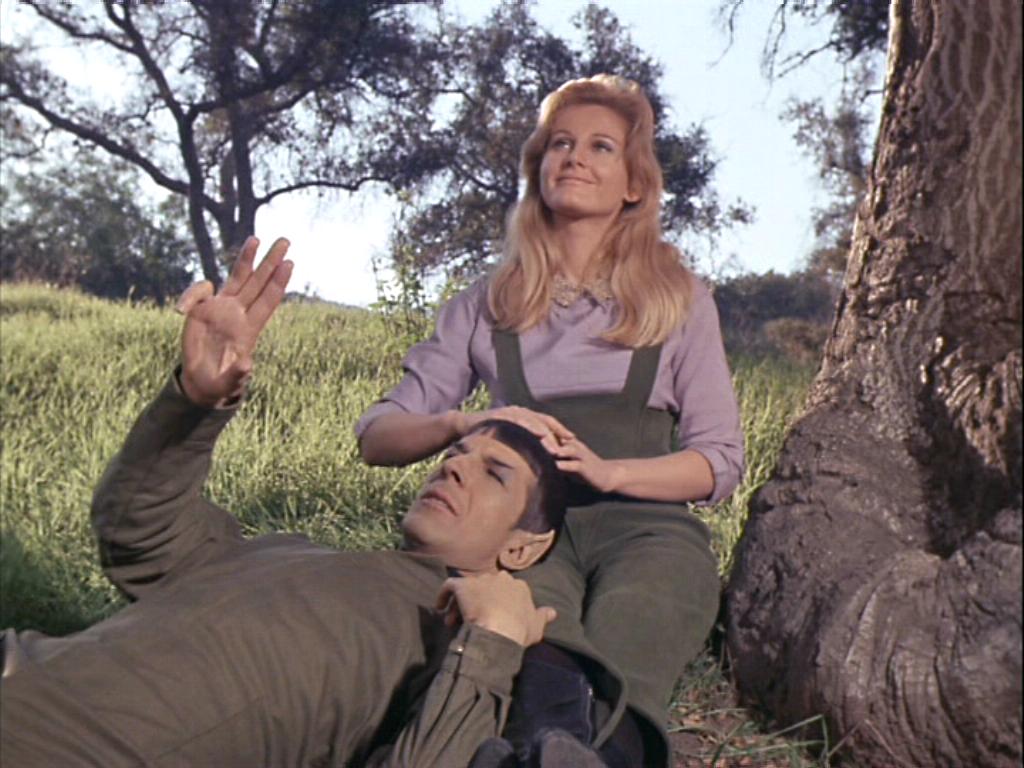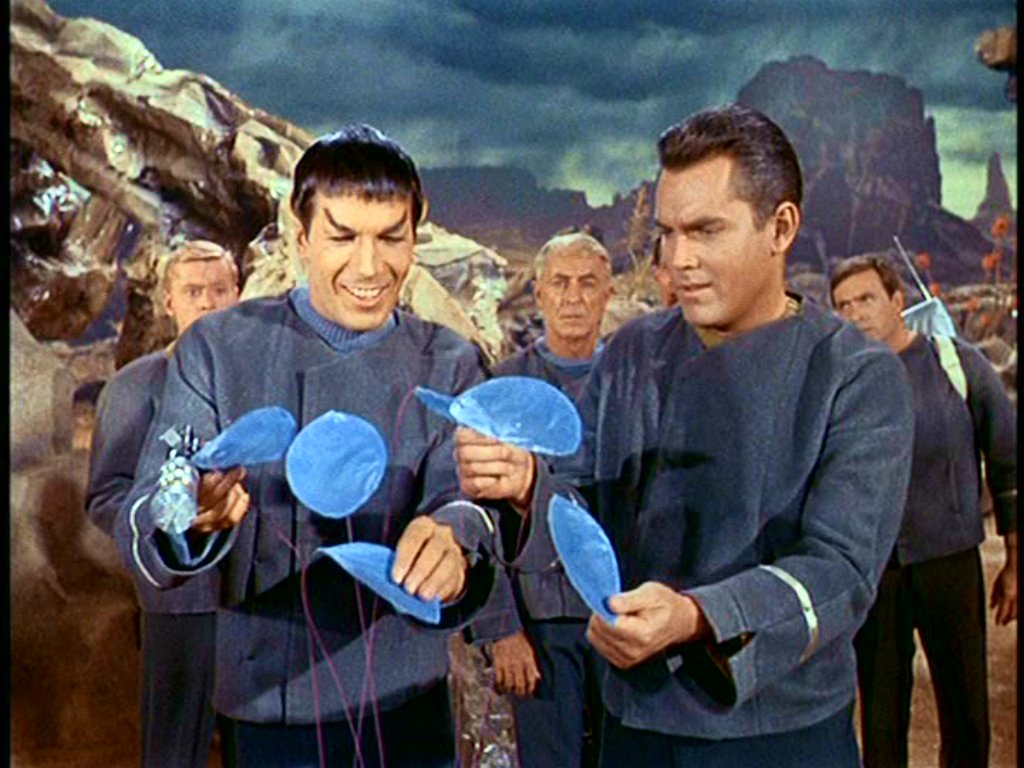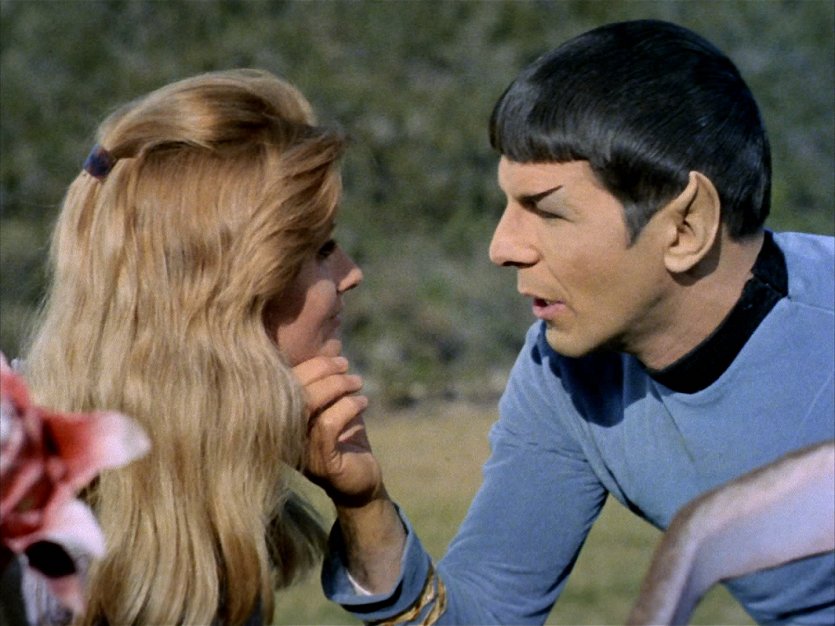One of my favorite Star Trek episodes was this Side of Paradise, which aired in Season 1, and perhaps more than any other defined Spock's character. I started thinking about this episode after watching the new internet series Star Trek Continues. How challenging it must be to play characters that others took to very high levels, especially the character of Spock.
In this episode, the Enterprise encounter an earth colony that had become infected with an alien spore, which made them physically healthy but which made them lose their desire to serve the Federation.
In this episode, the Enterprise encounter an earth colony that had become infected with an alien spore, which made them physically healthy but which made them lose their desire to serve the Federation.
Most importantly, Mr. Spock is re-introduced to Leila Kalomi, the only woman he ever loved. They had first met at the Academy. Mr Spock's stoic, emotionless demeanor prevented him from ever declaring his love for her. Yet Leila apparently could see through Spock's outer shell and recognize beautiful inner qualities that no one else could see. After all, Spock is one of the most truly noble and good characters in the universe. Leila continued to be in love with him, even after joining the Omicron Ceti III Colony led by Elias Sandoval.

Because of the effect of the spores, Spock's emotional defenses are removed and he realizes for the first time how deeply in love he is with Leila.
Leonard Nimoy is brilliant as Spock. It should be recalled that Spock's character was not formed instantaneously with the first show. Rather there were a huge number of acting decisions that needed to be made. What was Star Trek, anyway? Was it a kid's show? Was the pointy eared alien character going to be a sideshow freak, or what?

In the Star Trek pilot, Spock was more like other members of the crew, displaying emotions. He is shown here amusing himself with musical alien flora.
Ironically, Nimoy himself famously despaired of the ridiculousness of Spock, and only decades later realized that his legacy will be as one of the greatest actors in history. Far from a mere children's fantasy, I believe that Star Trek will be regarded by future generations as a prophetic vision of the progression of the human spirit.
I am quite sure that if we manage to avoid blowing our selves up, one day humans will leave the galaxy, and those colonist astronauts will all have seen Star Trek. They may not recall their Shakespeare, but they will be intimately familiar with their Roddenberry.
Nimoy's sensitive portrayal reveals Spock's inner self, and how his life has been spent denying himself the ability to feel human emotions. As he attempted to explain to Leila, "If there are self-made purgatories, then we all have to live in them. Mine can be no worse than someone else's."

To me Spock's repressed feelings are almost a metaphor for adolescence. Perhaps for that reason we find it easy to identify with Spock and his terrible aloneness.
Nimoy's show of emotion was almost shocking to those of us who had become accustomed to Spock as an emotionless alien up to that point in the show. Yet when Kirk is able to return Spock to "normal," we can see that Spock is not totally comfortable with the result. Part of him longs to return to state of being afflicted with the spores. But his friend Kirk seems oblivious to Spock's pain, concentrating only on the immediate task at hand.
Leila was played by Jill Ireland who tragically passed away years before her time due to cancer. Her performance was brilliant, playing a character that defied, um, logic, almost to the same extent as Nimoy's Spock. Consider a beautiful young PhD falling in love with an emotionless alien, and managing to live without male companionship for years until meeting the same alien again halfway across the galaxy. The odds against this are so high that they could only be overcome by television scriptwriters.
Moreover, in the script Leila was supposed to have been Hawaiian, whereas Jill was a fair skinned blonde with an English accent. Nevertheless, she turned out to be perfect for the role.
Moreover, in the script Leila was supposed to have been Hawaiian, whereas Jill was a fair skinned blonde with an English accent. Nevertheless, she turned out to be perfect for the role.
Jill Ireland was totally convincing in professing (Leila's) love for Spock, despite the fact that Spock was utterly incapable of returning it. Likewise we feel her pain when she realizes ultimately that she has lost Spock again. We can completely understand Spock's love for the intelligent, scientifically oriented yet very sensitive woman who supplies the emotion that Spock desperately lacks.
I'm glad that they didn't make Leila too overtly sexy, like many of the half naked women that populate the Star Trek universe. In this case, Jill's portrayal of a highly intellectual and sensitive young woman was perfect as the lost love of Mr. Spock.
At the end of the show, Spock admits that the entire experience at Omicron Ceti III was quite unsettling and yet memorable. "I have little to say about it, Captain, except that for the first time in my life...I was happy."
We are left to ponder how that must have felt.

This comment has been removed by a blog administrator.
ReplyDelete